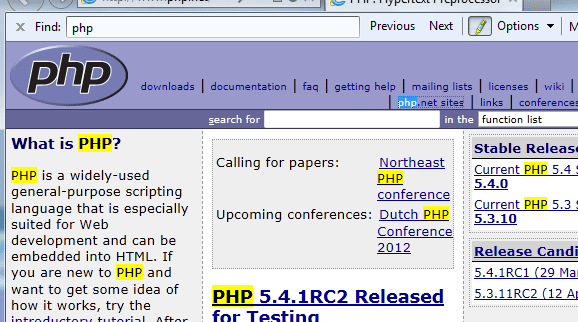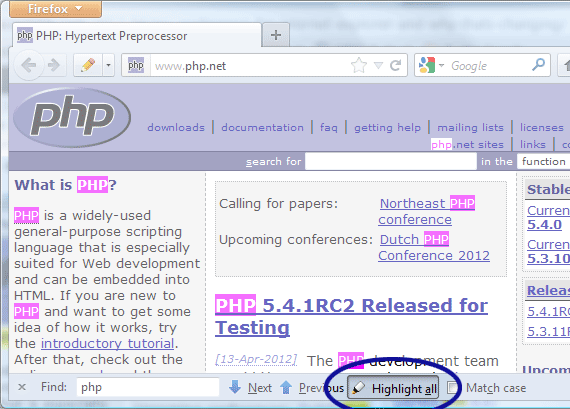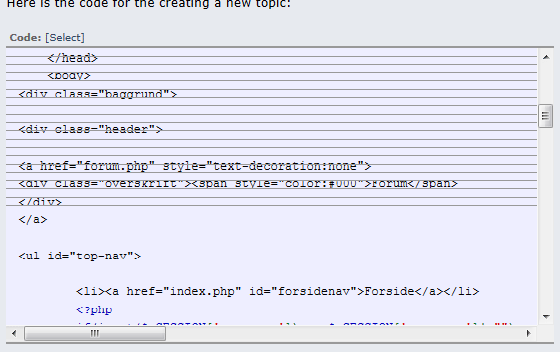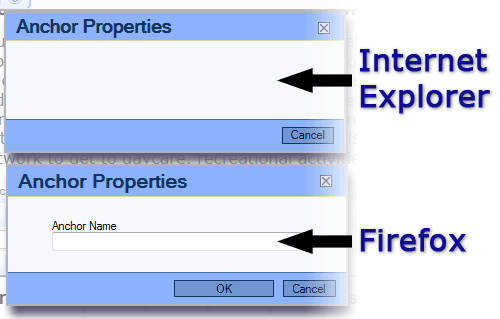My Preference for Internet Explorer and Why That’s Changing
Now that we're all gathered, it's time to confess. Until recently, my browser of choice has been Internet Explorer (IE). Even though other browsers have come along with better standards support and great add-ons like the Web Developer Toolbar for Firefox, I've found myself straying back to IE. Since the official release of IE9, however, my preference has been changing.
Advantages of Internet Explorer
Use the browser that customers use — The primary reason for using Internet Explorer is that I want to see what the majority of my website visitors see. That way I'm more likely to stumble across those browser-specific issues that visitors may run into and never report. Currently, most of the websites I maintain are heavily visited with Internet Explorer. Of course, that's been slowly changing in favor of Firefox.
More efficient find on current page feature — When visiting a web page, browsers typically have a search feature for finding keywords on the current page (see Finding Keywords Quickly on Web Pages with Ctrl + F). Internet Explorer provides a great feature where it highlights all the keyword(s) matching the search criteria within the page. Firefox, for example, only highlight the first occurrence of the keyword(s). We need to click Next over and over again to find them all. Internet Explorer lets us see them at a glance (see Figure 1).

Figure 1. Internet Explorer Highlights All Matches
Update (Apr. 24, 2012):Â it turns out that you can show all matches in Firefox by clicking the "Highlight all" option shown in Figure 2. Of course, the option needs to be selected every time you open the browser or search a different tab.

Figure 2. Highlight All Option in Firefox
Default style choices for HTML elements — There are a few other minor reasons for preferring Internet Explorer, but they're not really a factor anymore since CSS makes it so easy to get a consistent look across browsers. For example, when adding borders to data tables, I've always preferred Internet Explorer's toned down look. Firefox (and other browsers) use a color which is little too bold (see Figure 3).

Figure 3. Default Border Styles for HTML Tables
Why Internet Explorer Is Less Appealing Lately
So what changed? With the release of IE9, the hold that Internet Explorer has over me is slowly breaking. This is mainly due to websites I frequent not playing well with the browser and working just fine in other browsers like Firefox. For example, the code blocks on PHPFreaks.com become difficult to read when scrolling through someone else's code (see Figure 4). Clicking the unreadable text fixes the issue, until you start scrolling again.

Figure 4. Code Blocks Becoming Difficult to Read
More and more issues seem to crop up when working with websites on a daily basis. For example, while adding anchor tags using a Content Management System, the pop-up for creating the anchor didn't load the form controls. Everything works as expected in Firefox (see Figure 5).

Figure 5. Pop-up Not Showing Correctly in IE
While using Firefox on a more regular basis, I've also noticed that exporting data with phpMyAdmin is much faster. Exporting a relatively large database takes around 4 minutes in Internet Explorer and it happens within a minute using Firefox.
Conclusion
As you can probably tell, I've been slowly moving toward using Firefox. However, while comparing the major browsers (Internet Explorer, Firefox, and Chrome); Chrome seems to be a better choice. When searching for keywords on a web page, Chrome highlights all occurrences. Plus, my favorite Firefox extensions (Web Developer Toolbar and Firebug) are now available in Chrome. Now if only the rest of my website visitors would jump on the bandwagon.


0 Comments
There are currently no comments.
Leave a Comment